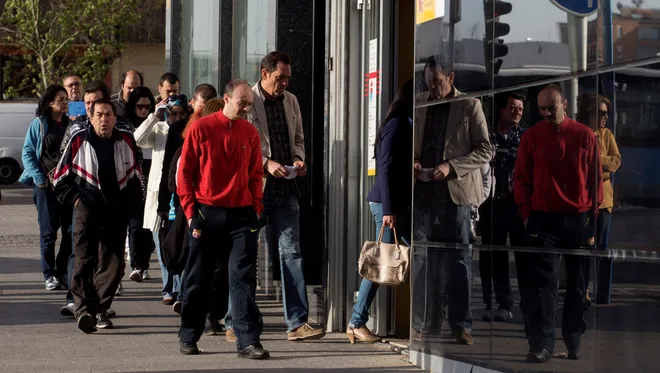More than 3 million Germans were unemployed in August. As many as it was about 10 years ago. This could happen again in winter, warns Andrea Nahles, CEO of the Federal Employment Agency.
More than three million people in Germany are unemployed, as many have not been for a decade. These are the most recent figures of the Federal Employment Agency.
In August 2025, 3,025 million people did not pursue any employment, 153,000 more than in August 2024. This means that the unemployment rate is currently at 6.4 per cent. So many people were unemployed in February 2015.
“In August, what we expected happened: Due to the summer break, unemployment has risen to over 3 million,” said Andrea Nahles, Chairman of the Federal Employment Agency. So the development was not surprising.
“The labour market is still characterised by the economic slackening of recent years. However, there are also the first signs of stabilisation,” Nahles continued. The forecast for the second half of the year shows fluctuations.
In September, the usual autumn recovery is likely to start and lead to a decline in unemployment, said Nahles. But it could be “that we will exceed the mark of three million in winter again.”
Unemployment is common in the summer – no need to worry?
The fact that the number is cracking the 3 million mark in the summer is also due to seasonal factors. The Federal Employment Agency explained that many temporary employment relationships end at the half-year change.
Graduates of the school or training would also temporarily register as unemployed over the summer. In most cases, the next occupation starts – whether study, training or employment – in autumn.
In the holiday season, many companies postpone new hires to the time after the summer holiday. “This constellation means that young people under the age of 25 in particular are affected by unemployment,” says Andreas Wegner, Chairman of the Management Board of the Neubrandenburg Employment Agency, in a press release.
Over the course of the year, a tendency towards less unemployment has been visible in the long term since 2010. The unemployment rate has exceeded the 6 per cent mark since 2024, and previously it was about seven years below.
Recession and lack of investment
Germany has been in recession economically for almost three years now. A study by the Institute of the German Economy (IW) in Cologne warned in May that the number of unemployed would increase in the summer and that the three-million mark could be broken.
“The German economy is under enormous pressure,” commented the figures in May, the IW head of economic studies, Michael Grömling. Companies would suffer from unnecessary bureaucracy and high taxes. The coalition of the Union and the SPD has announced discharges. “The faster they come, the better,” says the economic institute.
Germany would particularly suffer from the consequences of US President Donald Trump and global uncertainties, the IW continued. Specific problems for Germany are the high location costs and the resulting caution for larger purchases. According to IW experts, energy prices, rising wages, and many regulations are particularly burdening companies.
However, the German Trade Union Confederation warns that cuts are the wrong signal right now. Instead, DGB board member Anja Piel calls for a faster placement on Friday. “At a time when employers are less setting, job seekers need to be brought together much faster with vacancies.”
The risk would increase that the unemployed would not find new work in the long term, and at present, only around six per cent have been achieved. “Labour market policy, which works, provides impetus for economic growth and at the same time creates good funding offers and bridges in the works,” continues Piel. With the offers of further training and qualification, gaps in the labour market could be closed.














